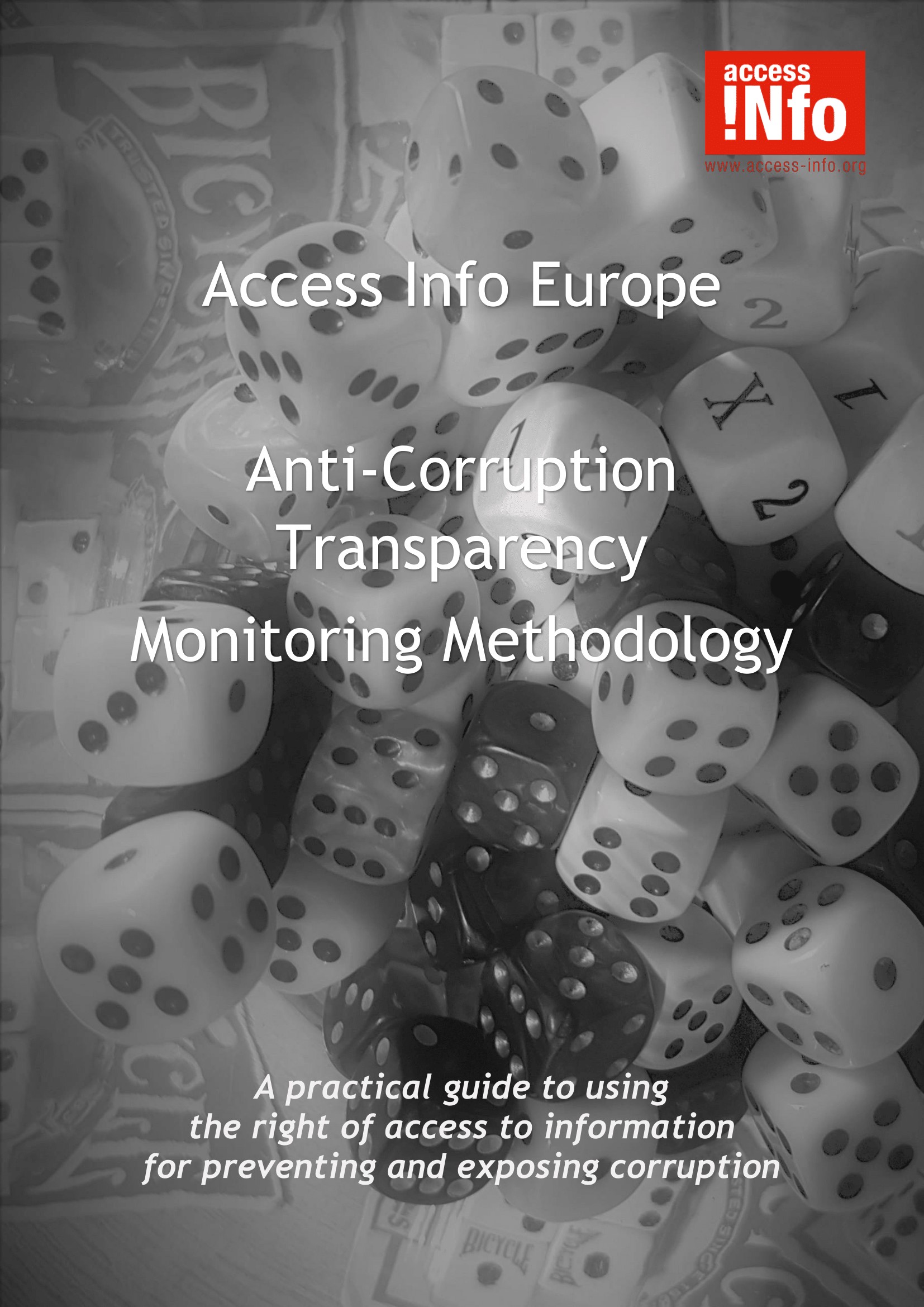The Access Info Europe “Anti-Corruption Transparency Monitoring Methodology” is designed for anyone wanting to assess levels of transparency in the fields of corruption prevention and integrity promotion.
Being transparent implies that governments make available, either at their own initiative or in response to access to information requests, certain classes of information which are essential for evaluating how public power is being exercised and how public funds are being spent.
The Anti-Corruption Transparency Monitoring Methodology is a practical guide which can be used by civil society, journalists, academics and others to evaluate whether the key information needed to prevent and/or identify corrupt practices within government is in fact readily available.
The Methodology draws on international anti-corruption treaties such as the United Nations Convention against Corruption, as well as other international standards and best practices, to propose some core classes of information which should be published by democratic and accountable governments. These core classes of information include, for example, copies of public procurement contracts, assets declarations by public officials, and information on decision-making in privatisation processes.
The classes of information which have most direct relevance to anti-corruption initiatives have been set out, inter alia, in international texts such as the United Nations Convention against Corruption (UNCAC) and similar regional instruments. In some cases the reference is explicit, in some cases it can be derived from the obligations established by these conventions.
The Anti-Corruption Transparency Monitoring Methodology is available here: ![]()
![]()

